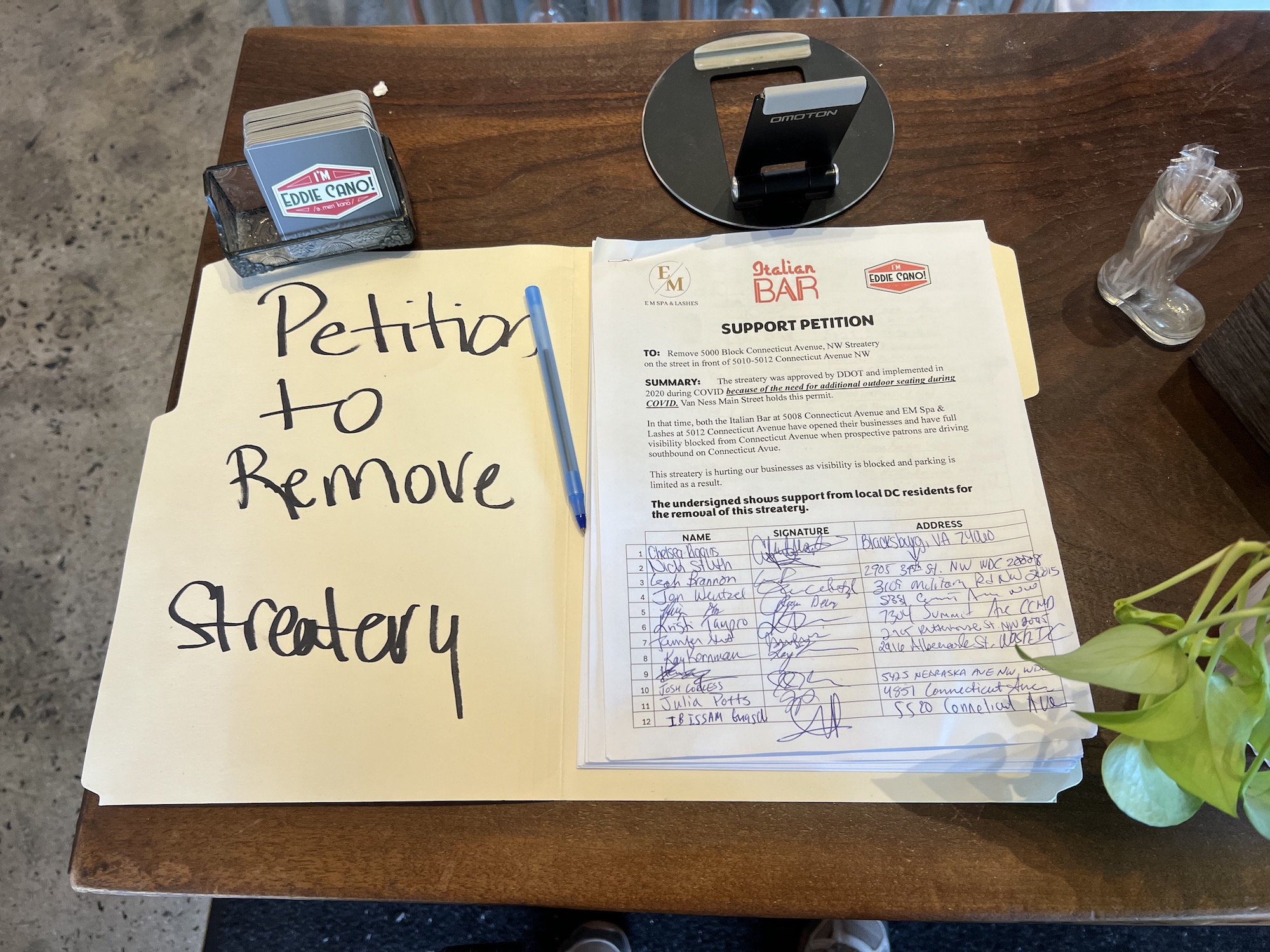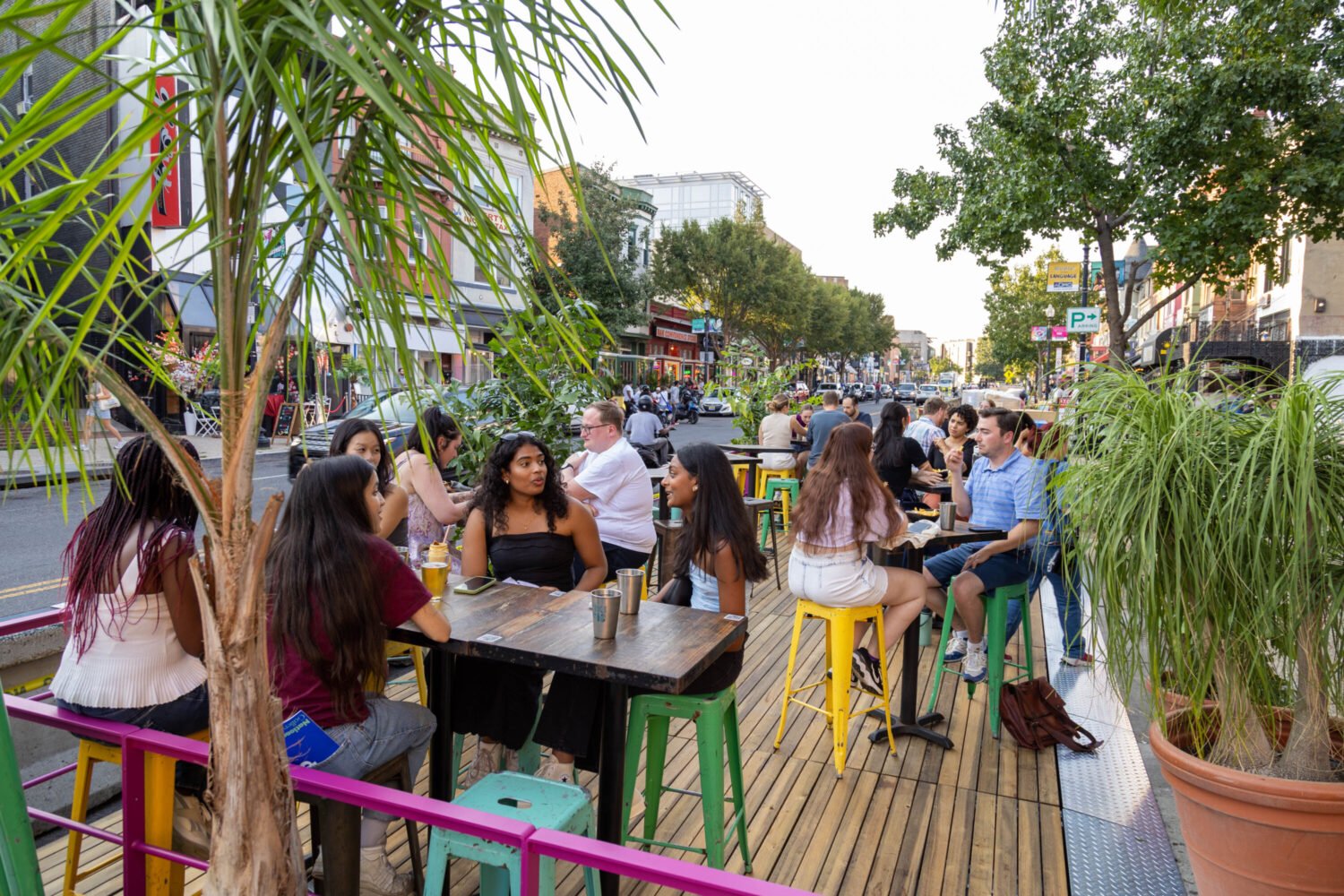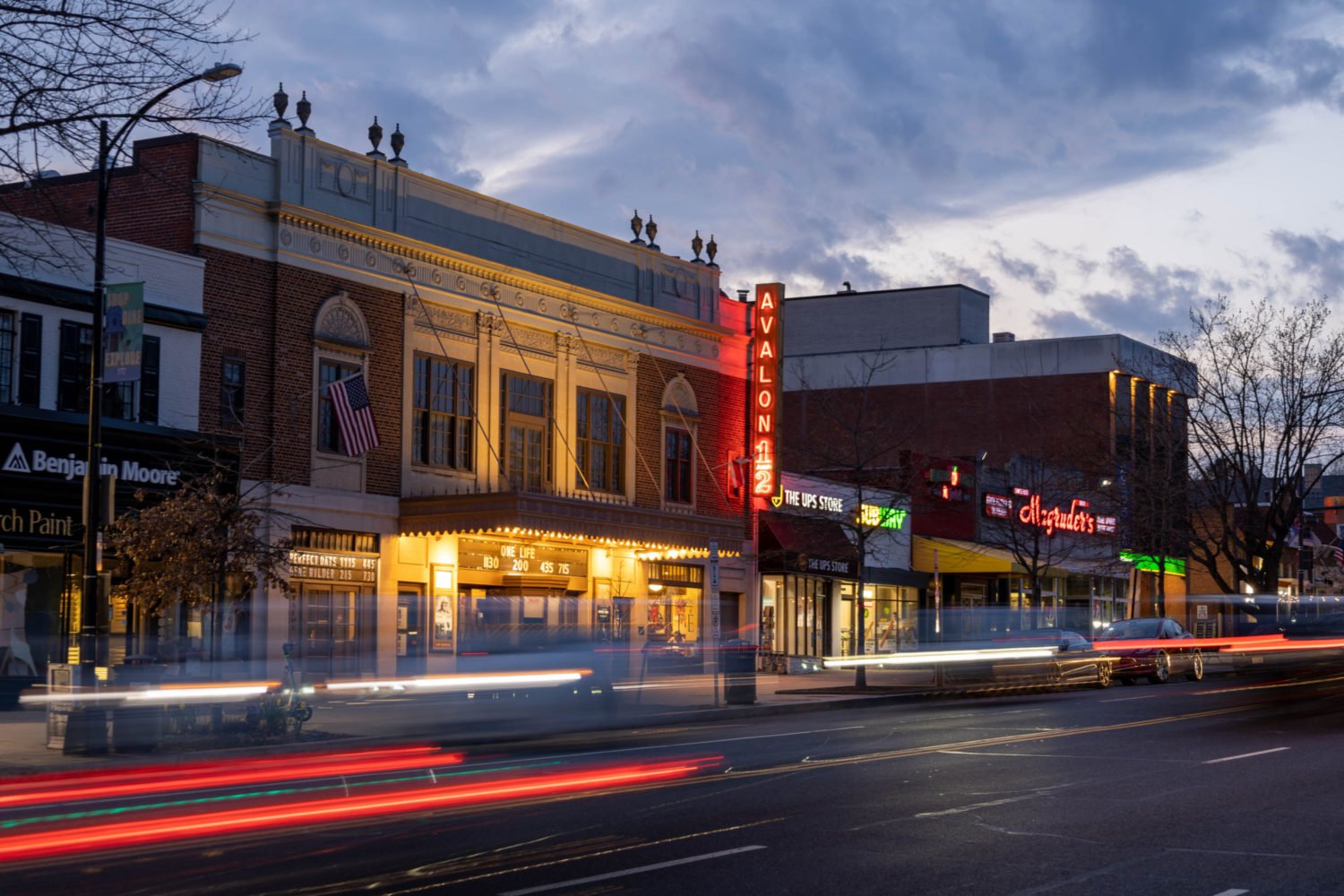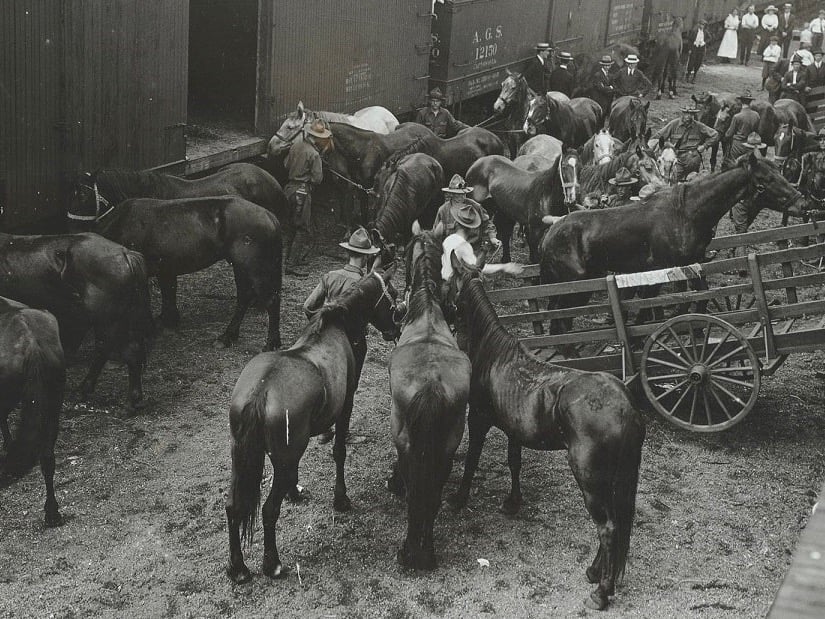The streatery in front of Rosemary Bistro Cafe isn’t the most noteworthy thing on its Forest Hills block. It’s just a temporary canopy—covered by a green tarp, surrounded by some concrete barriers and a few traffic cones—across Connecticut Avenue from Politics & Prose and Comet Ping Pong. For much of its four-year lifespan, it was just an assemblage of three rather grimy-looking dining tents.
But the unlovely outdoor structure—the only one on this section of Connecticut Avenue— has become the latest issue on the spirited neighborhood listserv, and has sparked warring petitions, a neighboring restaurant owner’s ire, and plenty of barbed commentary on both sides. Some commenters see the streatery as a welcoming lifeline; one called it an “eyesore that reminds me of a tent city.”
Carolyn and Massimo Papetti, who own two eateries that flank Rosemary on either side, are asking neighbors to drop into their restaurants to sign a petition to remove the structure, which they say blocks the view of one of their storefronts, Italian Bar, from the street, and takes up parking spots. It’s unclear how exactly their petition would translate into action, since Rosemary has a permit for its streatery, but Carolyn says it’s accumulated around 500 signatures.
One of the Papettis’ restaurants, the Italian-American dining room I’m Eddie Cano, once had a streatery too, until the end of 2022. But now, the Papettis argue, it’s time to take them down around DC, and for the District to stop permitting the structures altogether.
“Part of the reason I’m Eddie Cano survived was because of the city’s quick Covid era solution with the temporary ‘streateries’ which we greatly appreciated,” Carolyn wrote in an email. I’m Eddie Cano removed its streatery, she says, for “feng shui” reasons and, perhaps more urgently, because cars had crashed into it. “These Covid streateries were supposed to end in 2022,” she says.
Frederic Darricarrere, the French owner of Rosemary Bistro, says he’s been surprised by his neighbors’ adversarial approach.
“Unfortunately next door, their business went down, and they never got it back,” Darricarrere says. “And [Carolyn Papetti] is freaking mean and crazy, so she’s doing everything trying to kill my business. You have no idea.”

Both businesses say their side of the argument is the one that favors the disproportionately elderly diners of Chevy Chase.
For Darricarrere, the streatery is a symbol of his commitment to serving the neighborhood’s aging and Covid-conscious diners. He estimates that outdoor dining makes up half his business in warm months.
“It would be nonsense to take that away from us,” he says.
The Papettis, meanwhile, say their older diners would appreciate being able to park directly in front of the restaurants. This year, the couple had to shutter a third eatery they operated on Wisconsin Avenue, In Bocca al Lupo, and Carolyn says they need every bit of business they can get.
“We’re hanging on for our lives here,” she says.

I’m Eddie Cano, Italian Bar, and Rosemary Bistro are all firmly neighborhood restaurants— not necessarily destination eateries. But their conflict isn’t unique to this area of DC.
Outdoor streateries were built haphazardly in 2020 and 2021, as a pandemic-era lifeline for restaurants that depended on sit-down dining. As indoor dining restrictions fell away and many restaurants returned to normal service, the ad hoc structures triggered concerns about parking and aesthetics. In Georgetown, some business owners have also complained about the structures.
But for some restaurants—and the DC government—streateries have presented an opportunity to reimagine the use of public space. Next year, the District Department of Transportation (DDOT) intends to finalize a program to allow for streateries to permanently take over former parking lanes and sections of main streets all over DC.
It’s unclear if Rosemary’s streatery would get that designation, but Darricarrere is intent on keeping his structure permitted for as long as he’s legally allowed to do so.
To demonstrate the support of his clients, he’s started a petition of his own.


















